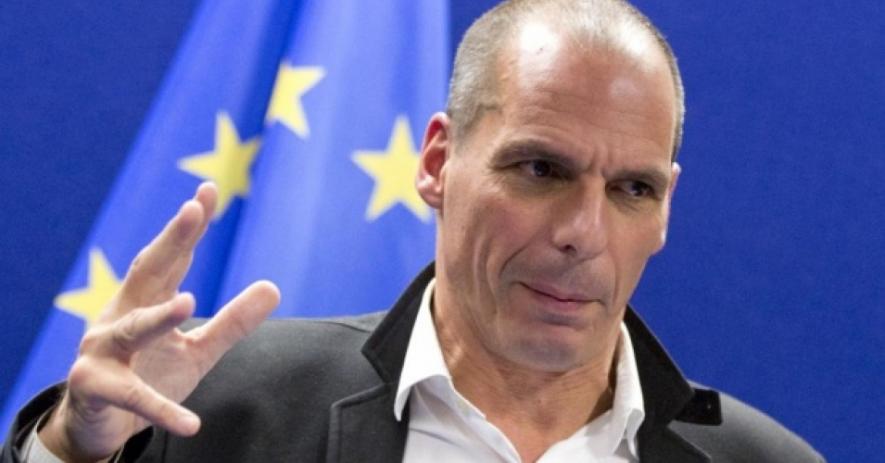'Gun to Greece's Head Pulled Away' As Tentative Deal Struck in Brussels
Though details not finalized, agreement will 'undo some of the damage of years of troika-induced depression'
The newly-elected Syriza government of Greece and its creditors from the 19-nation Eurozone have reportedly reached a draft deal for a loan extension to the country for another four months.
"Today’s agreement will allow the new Greek government some fiscal space to increas employment and economic growth, and undo some of the damage of years of troika-induced depression. That is the most important thing. The details of what to do about the debt can be worked out later." —Mark Weisbrot, CEPRThe specifics of the agreement, and the conditions imposed on Greece, have not yet been fully revealed to the public, but according to Mark Weisbrot, co-director of the Center for Economic and Policy Research (CEPR)in Washington, DC, the deal represents a "significant retreat" by the so-called troika and "shows that their austerity program, which has failed miserably, is no longer politically enforceable."

Greek finance minister Yanis Varoufakis speaks during a media conference after a meeting of eurogroup finance ministers in Brussels. (Photo: Virginia Mayo/AP)
According to CEPR's preliminary analysis, the agreement gives Greece fiscal flexibility, lowering previous fiscal surplus constraints and forestalls the immediate threat of Greece being forced out of the eurozone through a loss of support from the European Central Bank (ECB). Media reports citing Greek officials familiar with the deal indicated that additional tax increases and cuts to pensions were not part of the agreement.
"European officials had a gun to the head of the Greek government, and they just pulled it away – at least for now," Weisbrot said.
The agreement, he continued, "will allow the new Greek government some fiscal space to increase employment and economic growth, and undo some of the damage of years of troika-induced depression. That is the most important thing. The details of what to do about the debt can be worked out later."
The Guardian is offering live coverage of updates and commentary.
Following the announcement of the tentative agreement, ministers from the Eurogroup made limited statements to the press on Friday.
"This is not a moment for jubilation," said Greek Finance Minister Yanis Varoufakis in a press conference. "This agreement is a small step in the right direction."
In addition, Varoufakis stated, "We are going to write our own script on the reforms that need to be enacted."
According to journalist Helena Smith, other Syriza officials also indicated the deal allow for flexibility in terms of enforcing specific reforms of their choosing. However, the specifics of this commitment were not immediately clear.
A statement from Eurogoup reads, "The Greek authorities will present a first list of reform measures, based on the current arrangement, by the end of Monday February 23. The institutions will provide a first view whether this is sufficiently comprehensive to be a valid starting point for a successful conclusion of the review. This list will be further specified and then agreed with the institutions by the end of April."
"I’m glad to report to you that the work has paid off," Jeroen Dijsselbloem, the head of the Eurogroup of finance ministers, told reporters on Friday, according to The New York Times. "We have established common ground again."
The news follows tense talks, including open disagreement between Syriza and German officials, which has pressed for an austerity-driven bailout program.
Syriza was voted into office on the pledge to turn the page from austerity.
"The next few months will be important," concluded CEPR's Weisbrot, "since the confrontation between the new Greek government and the European authorities is the first time since the Great Recession that voters have successfully been able to challenge the troika’s previously unaccountable power. Their policies have been widely unpopular in Europe, but this is the first government that is really forcing them to change."
This work is licensed under a Creative Commons Attribution-Share Alike 3.0 License
Courtesy: commondreams.org
Disclaimer: The views expressed here are the author's personal views, and do not necessarily represent the views of Newsclick
Get the latest reports & analysis with people's perspective on Protests, movements & deep analytical videos, discussions of the current affairs in your Telegram app. Subscribe to NewsClick's Telegram channel & get Real-Time updates on stories, as they get published on our website.
























